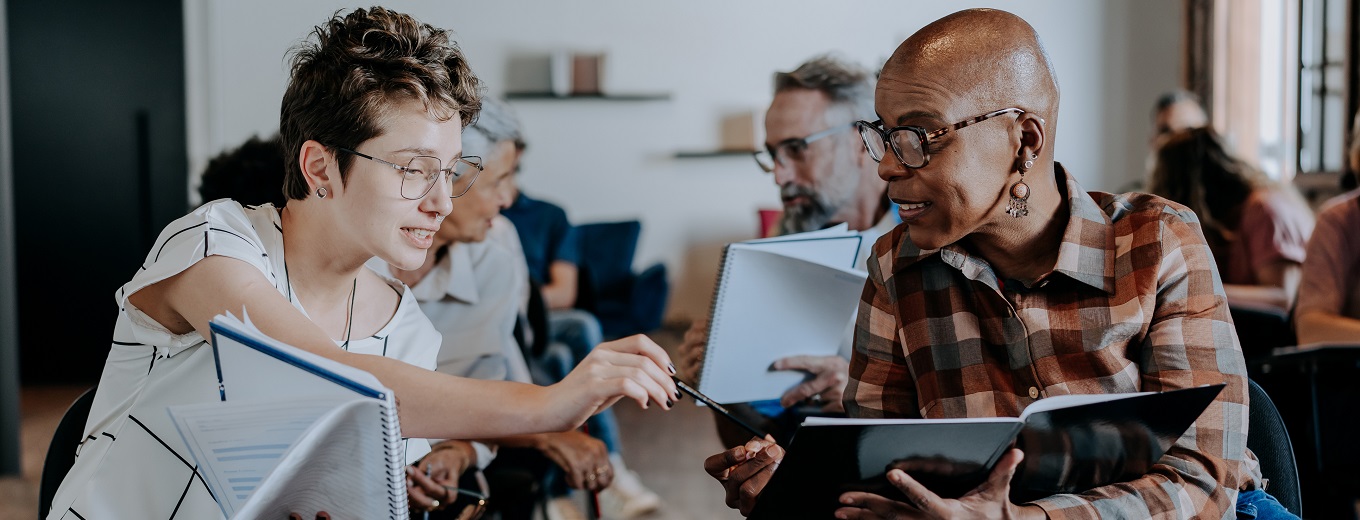CEDEFOP’s new report outlines two decades of EU progress in lifelong learning, highlighting the importance of recognising non-formal and informal learning.
With its recent publication of the Union of Skills framework (see SwissCore article) and its proposal for the Erasmus+ 2028-2034 programme, the European Commission (EC) is signalling its commitment to creating a European framework for lifelong learning. A new report by CEDEFOP provides a rare perspective on the progress made towards this goal in the past 20 years. The study, which is part of CEDEFOP’s project on transparency and transferability of learning outcomes, uses a literature review, quantitative data and eight case studies from EU Member States (Germany, Ireland, France, Italy, the Netherlands, Poland, Romania and Finland), to compare barriers to lifelong learning for European citizens in 2000 and in 2020.
Central to CEDEFOP’s assessment of lifelong learning is the ease with which individuals can accumulate learning experiences across institutions, sectors, and countries. At the start of the century, most national systems were characterised by a high degree of segmentation and few opportunities for learners to progress from one sector to the other, for instance from vocational to higher education. Validation of learning outcomes was equally lagging, preventing individuals from proofing prior experiences, particularly those gained in an informal setting, towards other institutions. Due to national fragmentation of education systems and a lack of international recognition mechanisms, mobility across borders was equally hampered. As a result, substantial barriers existed for individuals to engage in lifelong learning in 2000.
By 2020, many of these hurdles were substantially reduced. First, reforms facilitating stronger European cooperation, such as the European Qualifications Framework (EQF) and the adoption of the European Credit Transfer and Accumulation System (ECTS), increased the flexibility of learning routes. Second, as one of the most notable developments since 2000, more and more Member States (MS) started to recognise non-formal and informal learning, allowing individuals to turn experience from work, volunteering or informal study into recognised qualifications. The 2000–2020 period also saw major advances in learning mobility and recognition across borders. The Bologna Process, credit systems and the expansion of Erasmus+ helped make study and training abroad more accessible. Furthermore, simplified recognition procedures and stronger quality assurance have built greater trust among Member States.
Despite clear progress, the report finds that structural barriers remain. Validation and recognition procedures in many countries, such as in Germany, Italy and Romania, are not fully implemented and, where they are, can be slow and difficult to navigate. Participation in adult learning also still remains uneven. Adults with low qualifications, those unemployed or inactive, and people from disadvantaged backgrounds are still less likely to engage in training. Time constraints, cost, limited employer support and lack of guidance continue to deter participation. Lastly, new challenges are also emerging: Digital learning and microcredentials remain difficult to navigate for both learners and institutions, who need support to adapt their teaching and training offers accordingly.
CEDEFOP concludes that to make lifelong learning fully effective, policy coherence and practical implementation must advance together. The report highlights several key strategies, including stronger coordination between MS, expanded guidance for learners to create their individual lifelong learning pathways through the combination of different offers, inclusion measures for disadvantaged learners, and the continuous updating of existing frameworks to integrate advancements in digital tools and microcredentials. The report stresses that lifelong learning depends not only on institutional reforms but also on trust and transparency between the different national and sectoral systems.
Two decades of European cooperation have clearly expanded opportunities available for European citizens to learn throughout life. Today’s education systems are more flexible, qualifications more comparable, and mobility more achievable than in 2000. Yet persistent inequalities and institutional inertia still limit the reach of these benefits. Achieving a genuinely lifelong and life-wide learning culture will require sustained investment in coordination, digital infrastructure and inclusive practices. With its Union of Skills framework, the EC is taking an important step towards consolidating these frameworks to enable and encourage individuals to take part in lifelong learning.

